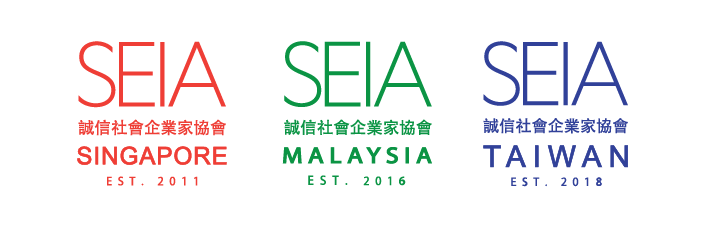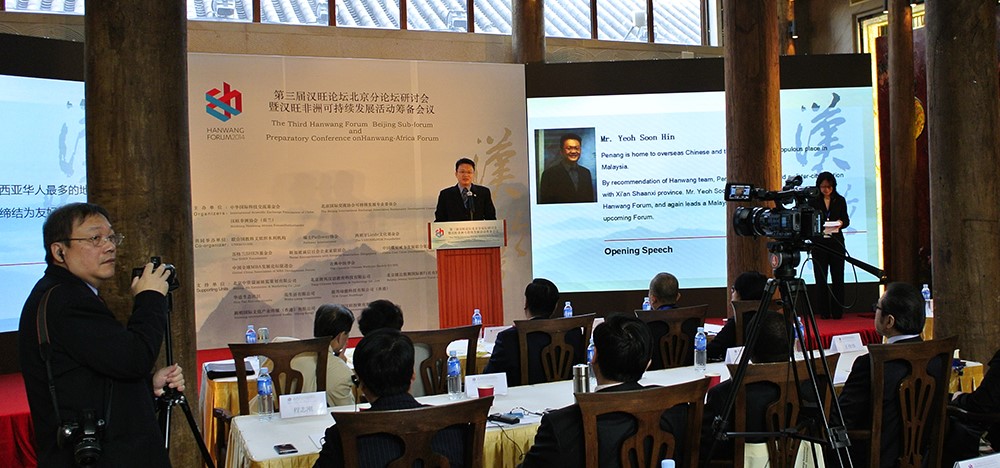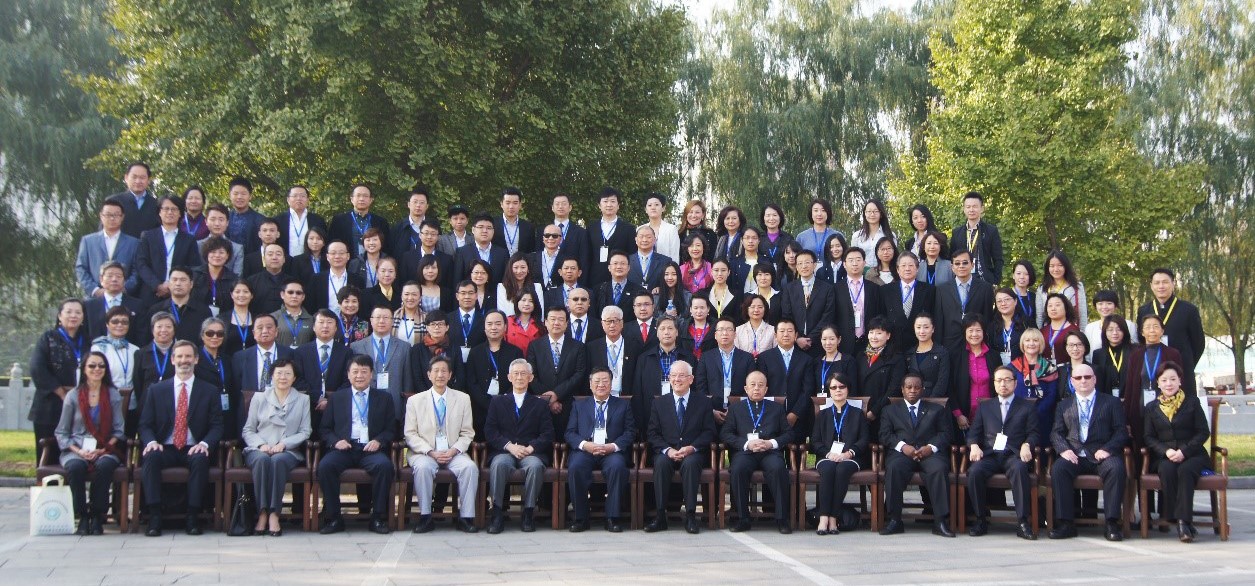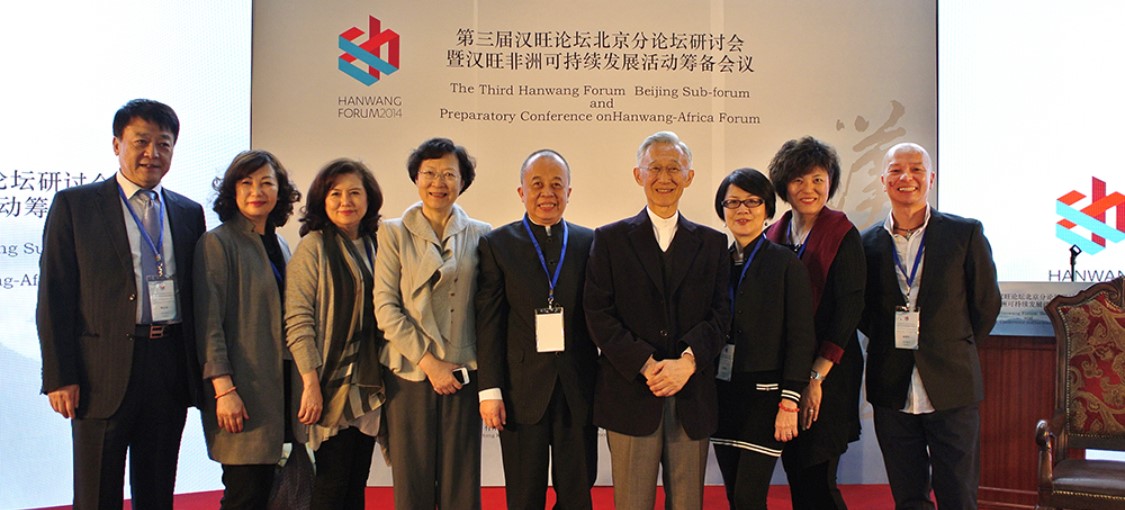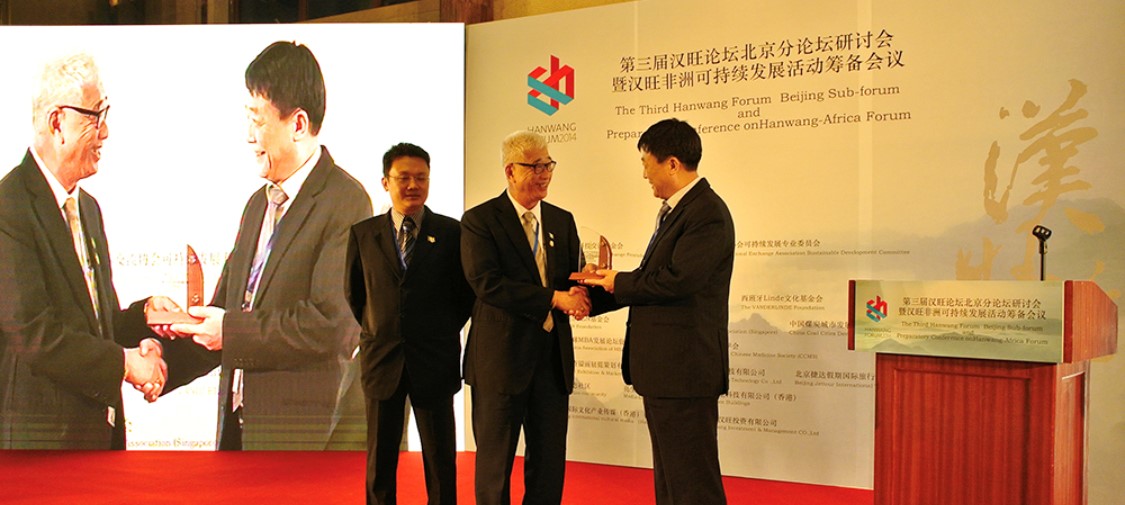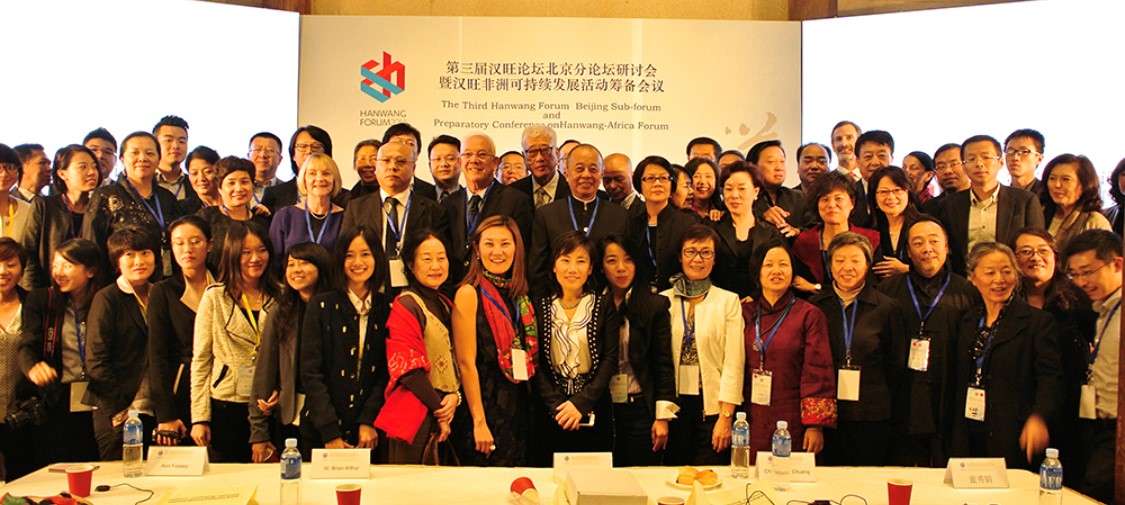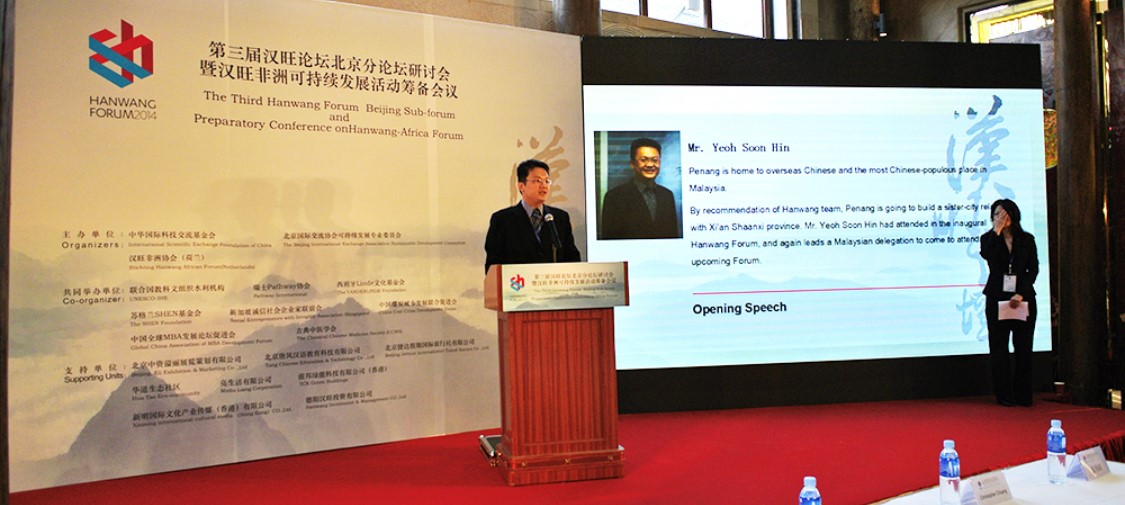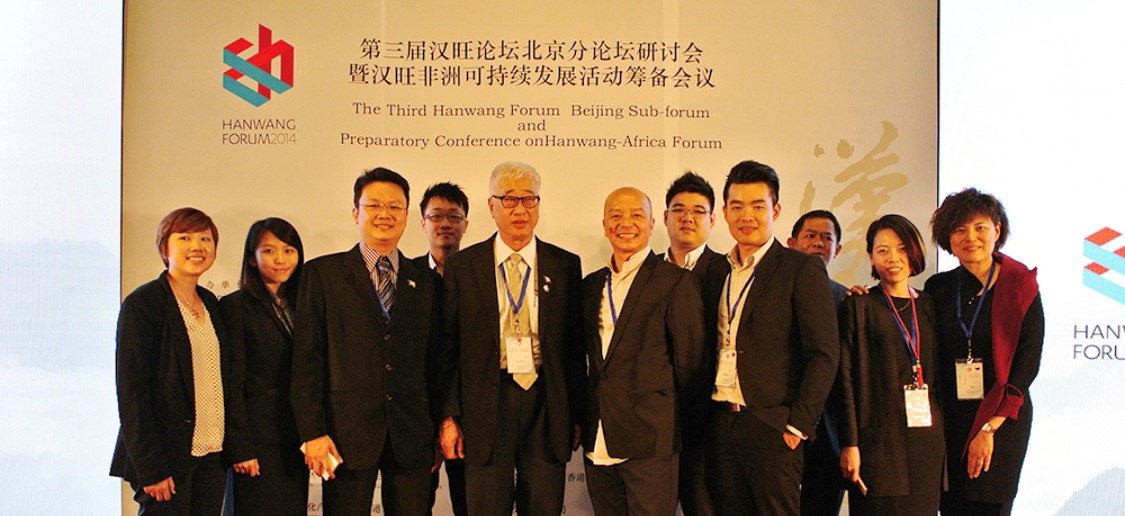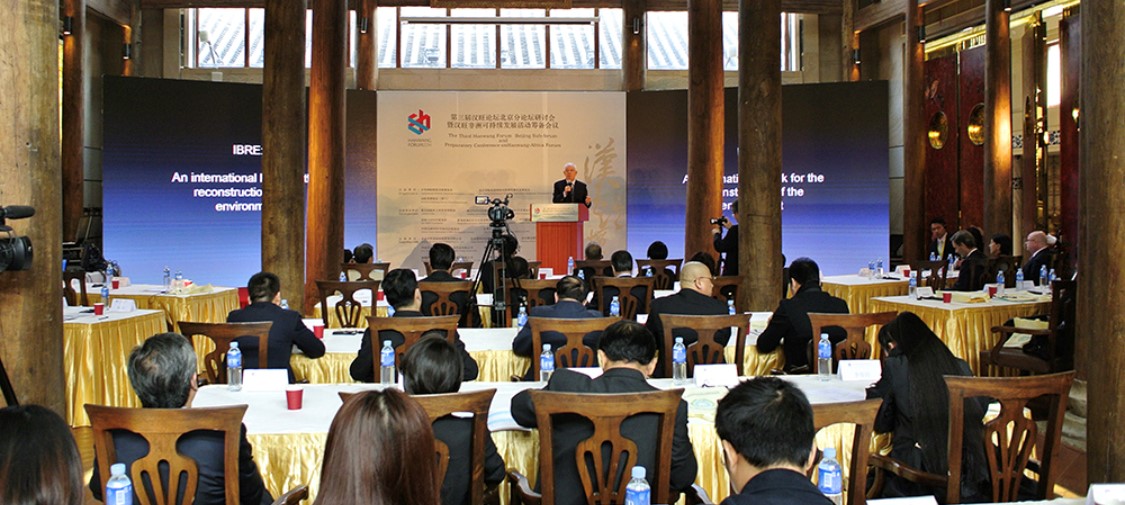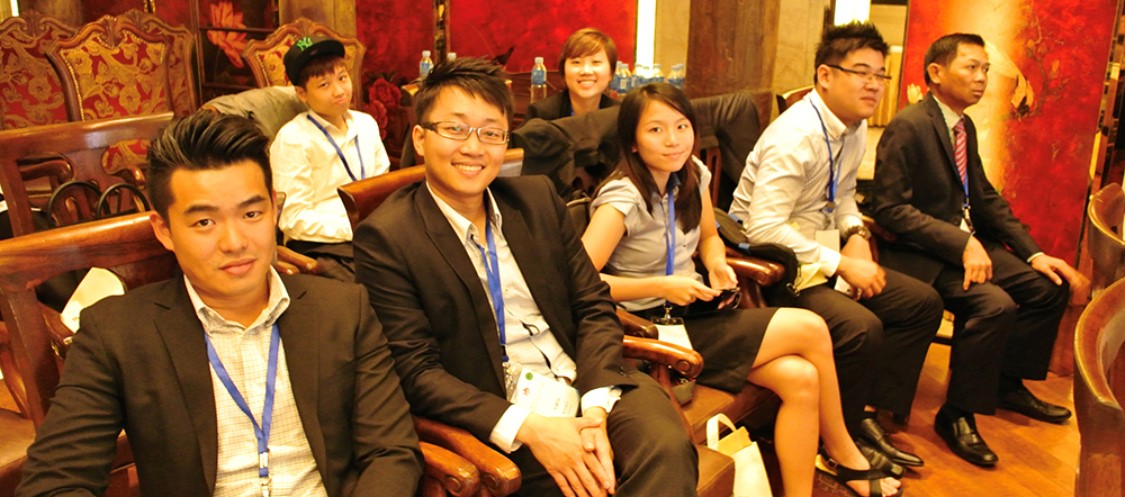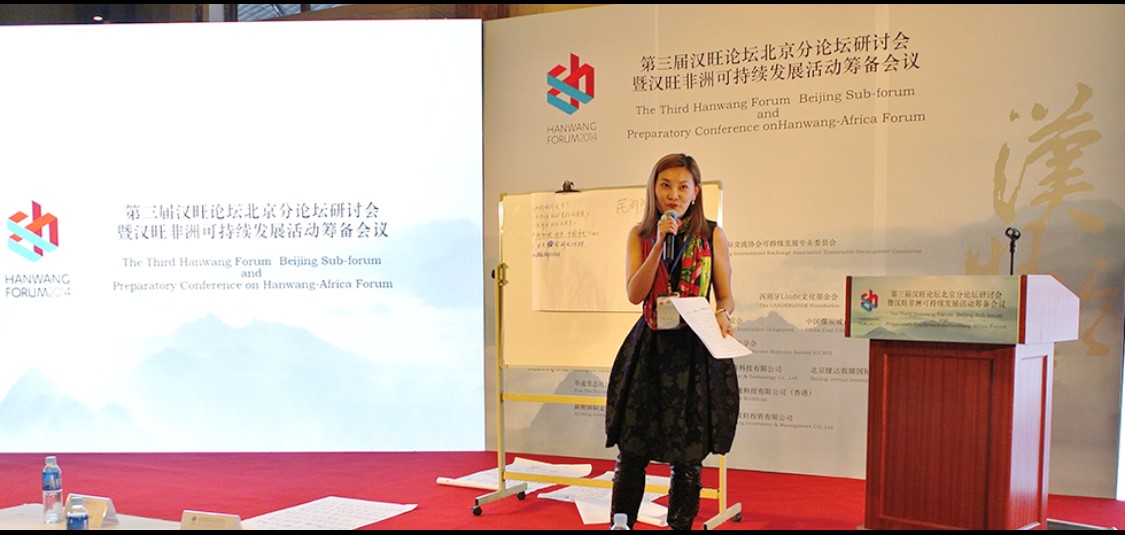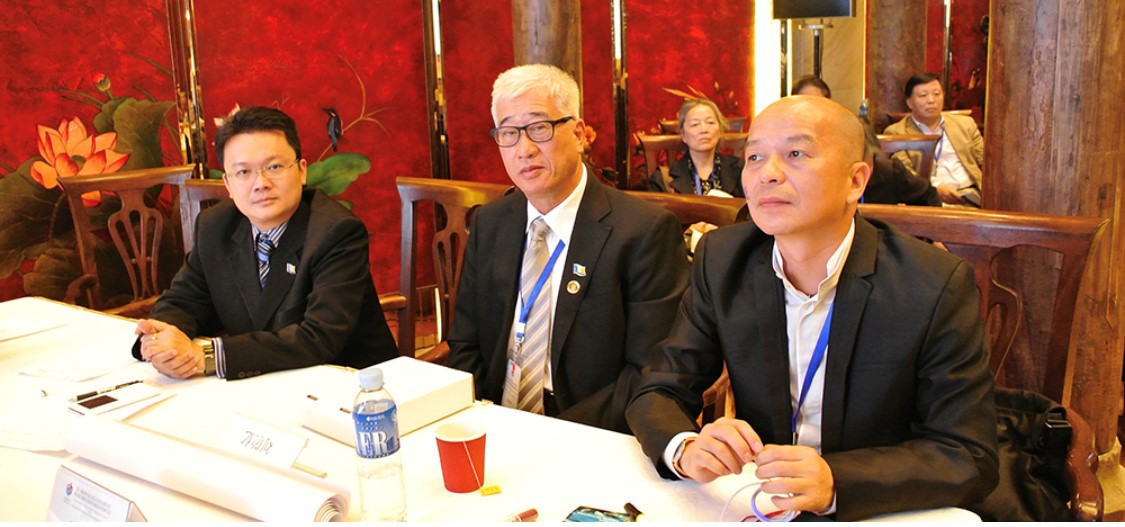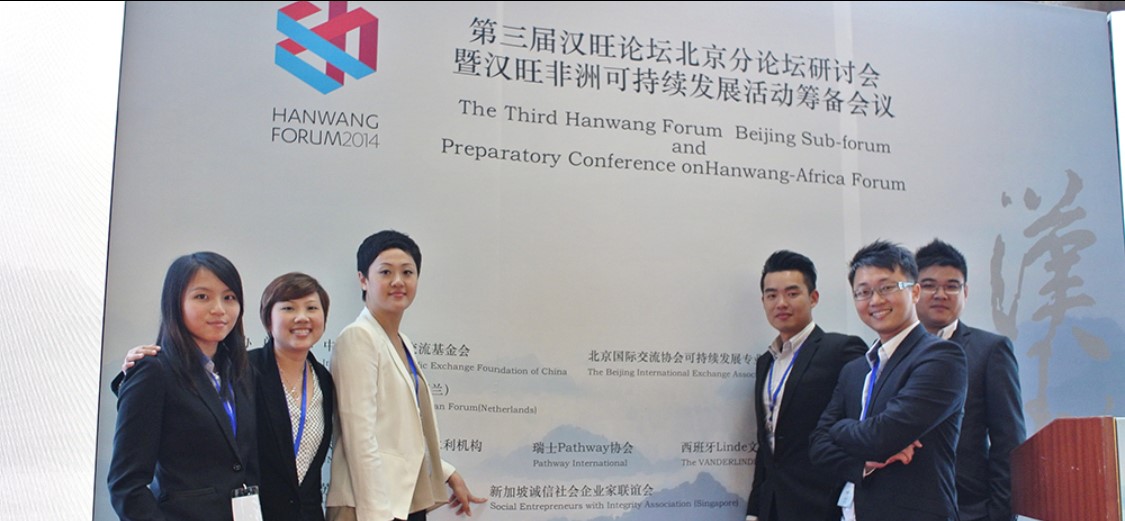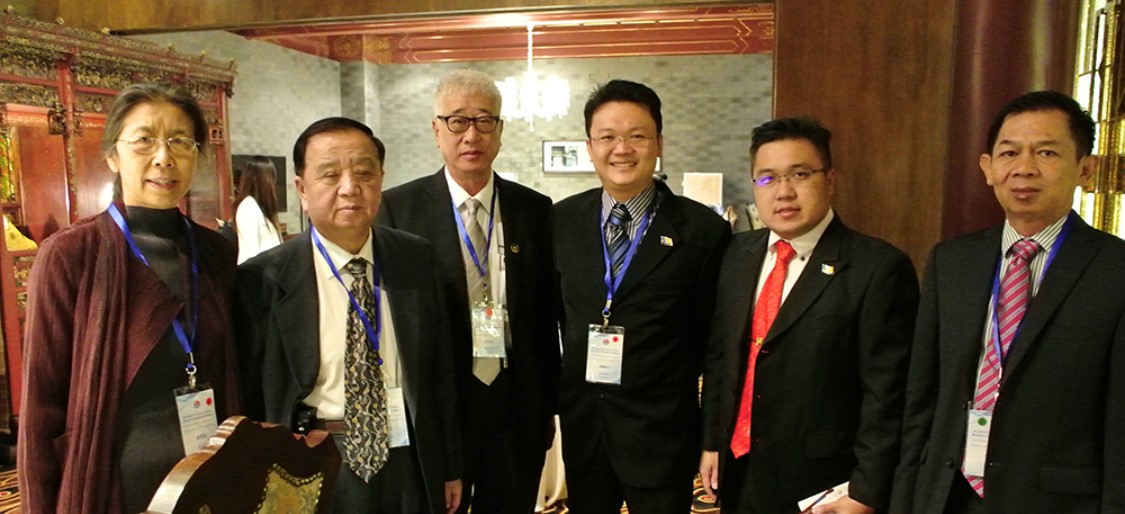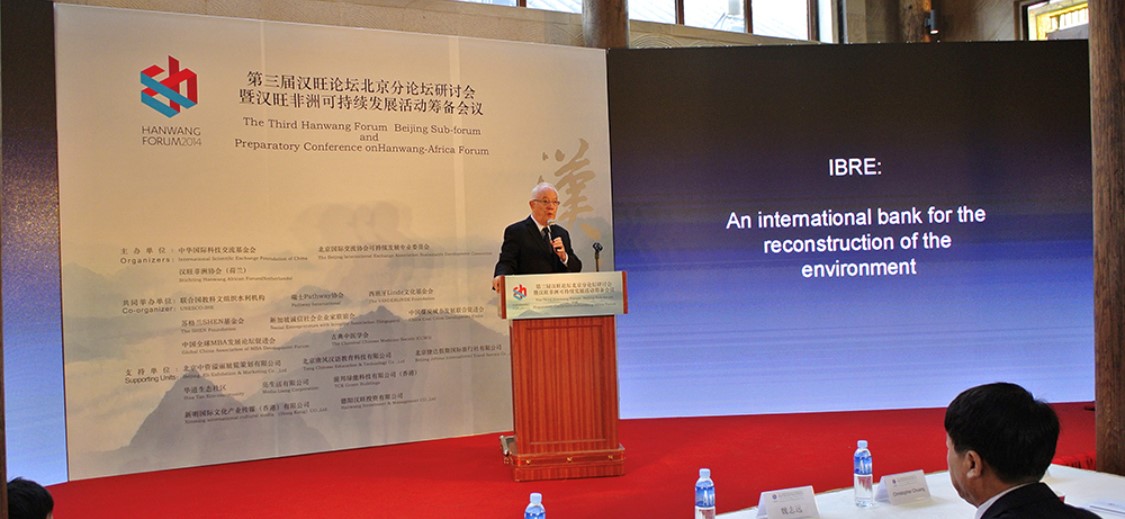THE THIRD HANWANG FORUM BEIJING SUB-FORUM AND PREPARATORY CONFERENCE ON HANWANG-AFRICA FORUM
第三届汉旺论坛北京分论坛研讨会暨汉旺非洲可持续发展活动筹备会议
THE THIRD HANWANG FORUM 2014
The Third Hanwang Forum (beijing sub-forum and preparatory conference on hanwang-africa forum) was held in Beijing on October 18, 2014. The forum gathered international delegates, governmental officials, policy-makers, renowned academics, business representatives, and civil society representatives including representatives from the Global Philanthropists Circle to discuss and exchange new and innovative ideas in the field of global sustainable development.
In the forum, Prof. W. Brian Arthur, leading economist and external professor of Santa Fe institue proposed for China to advocate and establish an international bank for the reconstruction of the environment. He mentioned that the IBRE proposal should not only considers the interests of China but also the interests of all mankind throughout the world, this leadership is not just economic leadership, political leadership, but a moral leadership, a leadership of the human spirit. The international banks can issue its own currency but unlike the world bank, the role and focus of IBRE is to help improve the environment, such as the cleaning – up of rivers, reforestation, and promote environmental technology development; and to purchase services and technology between each country – it is a more healthy way to rebuild the world.
In response to the IBRE proposal by Prof. W. Brian Arthur, Mr. James Newcomb, Former Group Manager of National Renewable Energy Laboratory (NREL) said that while it is impossible to restore our environment to its original state, the environmenal degradation and impact caused by the improper and prolonged usage of chemical fuels by the humankind is irreversible. However, IBRE can make the greatest ability to protect our environment. He also mentioned that Norway has an international seed bank, where millions of seeds and bred-species are conserved for the future, therefore, the IBRE should also invest in protecting and conserving the natural enviroment for the bred-species, leaving behind a pure land for the future mankind.
KEYNOTE SPEECH
- Prof. W. Brian Arthur – “New Approach in Sustainable Economic World”
- Ms. Yang Fang, UNDP Representative – “Resilience”
- Dr. Chen Li-an, Former Taiwan Minister of Economic Affairs – “Moral Civilization and Sustainable Development”
- Mr. George N. Manongi, Minister Plenipotentiary of the Embassy of Tanzania – “New Cooperative Platforms between China and Africa”
- YB Yeoh Soon Hin, State Assemblyman of Paya Terubong, Penang Malaysia – “Sister-City between Penang & Xi’an Shaanxi Province”
- Mr. Andew Fowlie, Official from Health and Care Innovation, Scottish Government – “New Treatment Methods and Services in Social Health Care”
- Mr. James Newcomb, Managing Director, Rocky Mountain Institute – “Natural Resilience in a Disruptive Era”
第三届汉旺论坛北京分论坛(暨汉旺非洲可持续发展活动筹备会议)于北京时间10月18日在京隆重召开。前中央委员、人民日报社社长、中华国际科学交流基金会理事长白克明,原总参某部胡永丰将军,坦桑尼亚驻华大使馆全权公使George N. Manongi,联合国开发计划署中国区代表杨方等致开幕词。“复杂学之父”W. Brian Arthur (布莱恩•阿瑟)教授,前美国国家可再生能源实验室团队负责人James Newcomb(詹姆斯.纽坎博),苏格兰政府卫生部改革办负责人Andrew Fowlie(安德鲁.弗莱)做主题发言。台湾地区前监察院院长、经济部长、国民党副秘书长陈履安博士,联合国教科文组织水利机构(UNESCO-IHE)中国区代表周仰效教授,马来西亚槟州环保部彭文宝部长暨州议员杨顺兴、刘敬亿先生等及全球家族公益协会(GPC)的代表等在内的国际知名政要、学者、企业代表及社团组织共同出席本届论坛。新华社、人民日报社等国内外主流媒体共同参与追踪报道。
本届汉旺论坛继续围绕全球可持续发展领域中的时代议题进行研讨与交流。当代最负盛名的经济学家,有复杂学之父称号的布莱恩•阿瑟教授全球首次提出应该由中国来倡导建立国际环境重建银行,不仅仅考虑中国的利益,而是考虑整个世界全人类的利益,这种领导力不仅仅是经济的领导力、政治的领导力,而是一种道德的领导力,一种精神的领导力,这个银行可以经由发达国家提供资金,发展中国家共同参与。该银行可以发行自己的货币,该国际银行的作用像世界银行,但是与世界银行是不同的,它是针对环境工作的银行。依靠贷款和资助来帮助改善环境,包括清理河流,再造森林,促进环保技术发展等;还可以在国家之间互相购买服务和技术,用更健康的方式来重建这个世界。该国际银行应该是完全独立的,非盈利性的,不止是可以帮助人类,也可以帮助其他的物种。
前美国国家可再生能源实验室团队负责人詹姆斯-纽坎博先生回应了布莱恩•阿瑟教授国际环境重建银行的提议,他认为,环境的重建银行,并不是说把环境恢复到以往的状态,这是不可能的。我们人类多年来的化学燃料的运行体制与地球环境保护发生了巨大的冲突。能源的不当使用造成了很多环境问题,是不可逆的。
但是国际环境重建银行可以尽最大能力去保护特殊环境,特别是保护能够“孕育物种的环境”。挪威有一个国际种子银行,有好几百万种物种的种子预留在未来的时候所使用。汉旺论坛要发起的这个国际环境重建银行,应该包括投资“孕育物种的环境保持项目”,为人类留下一片净土。
与会代表认为,汉旺论坛本着“为世界服务”的宗旨,用创新的思维,探索资源节约型经济新的发展战略,必须践行科技引领、金融支撑、产业推进三位一体的路径。本届论坛延续首届论坛所倡议的“7+1”框架:即分为“政府政策、社会团体、农业与食品、医疗卫生、新能源(节能环保)、信息科技、生态社区”与“文化传承与创新”等七个小组讨论,与会者就共同影响经济、环境和社会凝聚力的领域问题进行了深入的探讨和交流。与会者达成共识,通过国际交流合作,加强政府间、半官方及民间合作,开展国际科技合作工程,加强信息交流和人才培养,携手应对人类共同挑战,实现各国共同发展。
